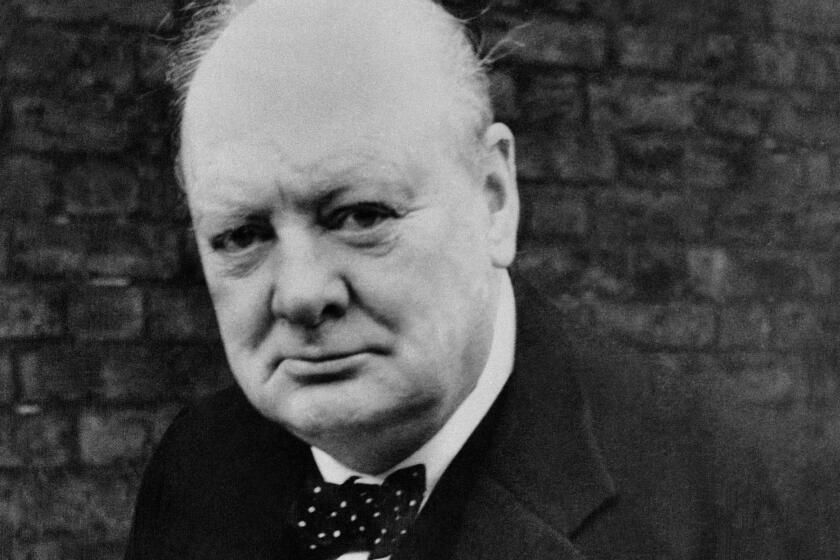A Word, Please: A lot of crimes against grammar get posted on Nextdoor

- Share via
“My partner and I’s bikes were stolen,” a woman posted on my local Nextdoor.com recently.
Not familiar with Nextdoor? It’s the reason why, some years back, everyone you know in every town from coast to coast started talking about the crime wave hitting their neighborhood. The real crime was social media nudging out local news, siphoning advertising dollars away from professional journalism and toward a barrage of hysterical, context-free anecdotes about porch pirates and noises that sound like gunshots. But I digress.
Point is, a lot of folks go on this hyperlocal social media site to tell their neighbors about crimes, coyote sightings and whatnot and, when they do, they don’t always use perfect grammar. Nothing wrong with that. These aren’t doctoral dissertations. But sometimes the grammar is surprising. Revealing. Like “my partner and I’s.”
As kids, we got it drilled into our heads that “me” is often improper. “Kim and me are going to the park” was swiftly corrected by a parent or teacher saying, “It’s Kim and I, not Kim and me.” This valuable lesson about subject and object pronouns got filtered through our little kid brains and settled there as: “I” is bad. It doesn’t go with Kim or any other person. If you don’t want people to think you’re dumb, avoid “I” anytime there’s an “and” plus another person.
The result: Sentences like “The manager saw him and I” and “This is between you and I” and other “and I” structures that miss the mark of perfect grammar precisely because the speaker was trying too hard to be proper.
A lot of experts point out that these sentence structures are acceptable in casual speech. But that’s the problem. The folks using “I” this way are aiming for proper speech. They’re trying to be as grammatical as possible, and it backfires.
A Merriam-Webster’s Dictionary Instagram post recently stirred controversy by stating the facts about prepositions and whether or not they can end a sentence.
Whenever it’s the object of a verb, like “saw,” or a preposition, like “between” or “with” or “to,” the most grammatical choice is “me,” not “I.”
The manager saw him and me. Thanks for meeting with her and me.
Usually you can find the right pronoun just by trying the sentence without the other person: The manager saw I, or the manager saw me? Thanks for meeting with I, or thanks for meeting with me? Adding an extra person or people doesn’t change the fact that “me” is better in these sentences.
“My partner and I’s bikes” is more complicated because now we’re talking about possessives. If you’re convinced that “I” is always proper with another person, it’s understandable that you’d have trouble handling a sentence that calls for possessives. But the solution is just as simple: Try omitting the other person.
That is, would you say: “I’s bike was stolen” or “My bike was stolen”? The answer is clear. There is no “I’s.” When you’re talking about something you possess, you use “my”: My bike was stolen.
Another matter complicating our bike-theft sentence: How do you form possessives when you’re talking about two people’s bikes? Is it “my partner’s and my bikes,” or perhaps “my partner and my bikes”? Honestly, it doesn’t matter. This is advanced stuff that your reader most certainly will not know. Frankly, even I’m a little fuzzy on the subject.
The simple rule for “shared possessives” is that if both people share a thing, add the apostrophe and S to only the final person: Hal and Betty’s house. But if each person separately owns one of the things, each gets their own apostrophe and S: Hal’s and Betty’s bikes.
According to that rule, “My partner’s and my bikes” is correct. But so is “my partner and my house,” which sounds bad to my ear. That “partner” screams for an apostrophe and S, simply because it seems weird without one. That’s why, personally, I would use “my partner’s and my house.”
Choose the one you prefer. As long as it’s not “I’s,” you’ll do fine.
June Casagrande is the author of “The Joy of Syntax: A Simple Guide to All the Grammar You Know You Should Know.” She can be reached at JuneTCN@aol.com.
All the latest on Orange County from Orange County.
Get our free TimesOC newsletter.
You may occasionally receive promotional content from the Daily Pilot.






